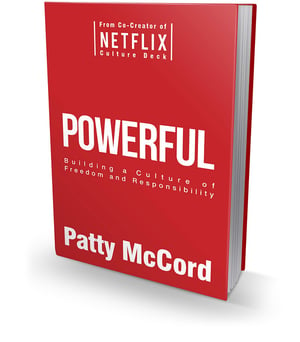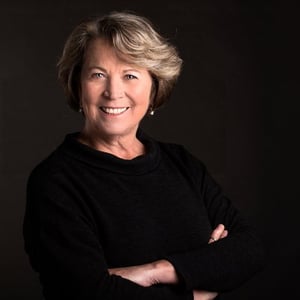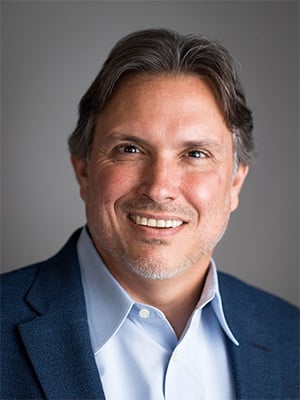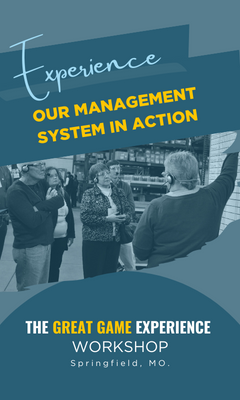.png?width=1200&name=Netflix_Blog%20(1).png)
Few companies have exploded onto the scene the way Netflix did in the late 1990s. Perhaps more impressively, the company beat back an 800‐pound gorilla called Blockbuster Video on its way to radically changing how many of us now consume TV shows and movies.
What makes Netflix’s success interesting is how it managed to embrace several massive changes in its business model as it outmaneuvered its much larger rival. The first of those big shifts was when co‐founder Reed Hastings decided that Netflix would begin offering monthly subscription plans to its customers where they could rent as many movies as they liked for a flat fee. Even more radical was the notion that it would also eliminate late fees—which made up a large percentage of Blockbuster’s revenues. But pivoting like that promised to not only disrupt Blockbuster—it might also rattle Netflix’s employees, causing them to wonder if the new business model would work. How could they pull everyone together and get them to believe this was the best strategy moving forward?
 According to Powerful: Building a Culture of Freedom and Responsibility, a big part of Netflix’s secret to success in shifting first to a subscription model, and later, to digital streaming, was that it practiced open‐book management: every employee—from their engineers to their customer service agents—was taught how the business made money.
According to Powerful: Building a Culture of Freedom and Responsibility, a big part of Netflix’s secret to success in shifting first to a subscription model, and later, to digital streaming, was that it practiced open‐book management: every employee—from their engineers to their customer service agents—was taught how the business made money.
In other words, they had built a business of businesspeople.
Patty McCord, the author of Powerful, was a key confidant of founder Reed Hastings and the head of HR at Netflix during its rise. In her book, she credits reading the The Great Game of Business by Jack Stack and Bo Burlingham for inspiring Netflix to adopt transparency and education when it came to the company’s financials and its strategic goals.
McCord writes in her book that she preferred the title of COO of culture and the chief product manager of people because she came to understand that her role was not to enforce policies or procedures. Rather, it was to help teach every Netflix employee how his or her actions impacted the business.
She writes:
"I fell in love with being a businessperson, and I didn’t want to be a happy‐face HR den mother anymore. I also fell in love with explaining very clearly and fully to everyone in the company why we were making the decisions we were, how they could best participate in achieving our goals, and what the obstacles would be."
In her book, McCord talks about how communicating and teaching employees—including the customer service agents working on the company’s front lines—about how their work contributed to the company’s bottom line was the most effective way to get them engaged in their work.
McCord says that the first thing every new agent learned when they joined the company was to read the company’s P&L—which might seem like a radical policy until you consider how the goal was to get every agent to understand how their interactions with customers directly impacted the company’s bottom line. She also takes on the doubters who might think that a customer service agent may not be smart enough to learn something as important as how to read a financial statement by writing:
"I find there is a bias among executives that this is 'MBA stuff' and that “those people” wouldn’t be interested or couldn’t get it. My answer: then don’t hire people who are that stupid. Better yet, don’t assume that people are stupid.
"Assume instead that if they are doing stupid things, they are either uninformed or misinformed."

Later on, she writes: “If your people aren’t informed by you, there’s a good chance they’ll be misinformed by others.”
McCord also dismisses all of the recent arguments concerning so‐called millennial workers and how they somehow need to be treated differently in order to engage them at work. Rather, she says that the best way to engage a young worker early in his or her career is to teach them more about how the business works.
"If we teach young employees how to read a P&L instead of how to tap a beer keg, or give them an honest‐to‐God project they have to collaborate on rather than doing on online training program about collaboration, we’re giving them a skill they will apply for the rest of their lives."
That’s a powerful sentiment about the power of financially literate employees and open-book management in action where rather than defining your employees by their roles alone, you teach them to think and act like businesspeople. When you do that, you open up a world of possibilities not just for your business, but for those working inside it as well.
Learn how to gain trust and alignment through financial transparency at our Discover the Game Virtual Workshop!
Other articles you might like:
-
How One Company Saved $270K in MiniGames™ & Educational Training
-
4 Easy Strategies to Communicate Financials so Employees Can Understand
.png)








.png)




-5.png)

